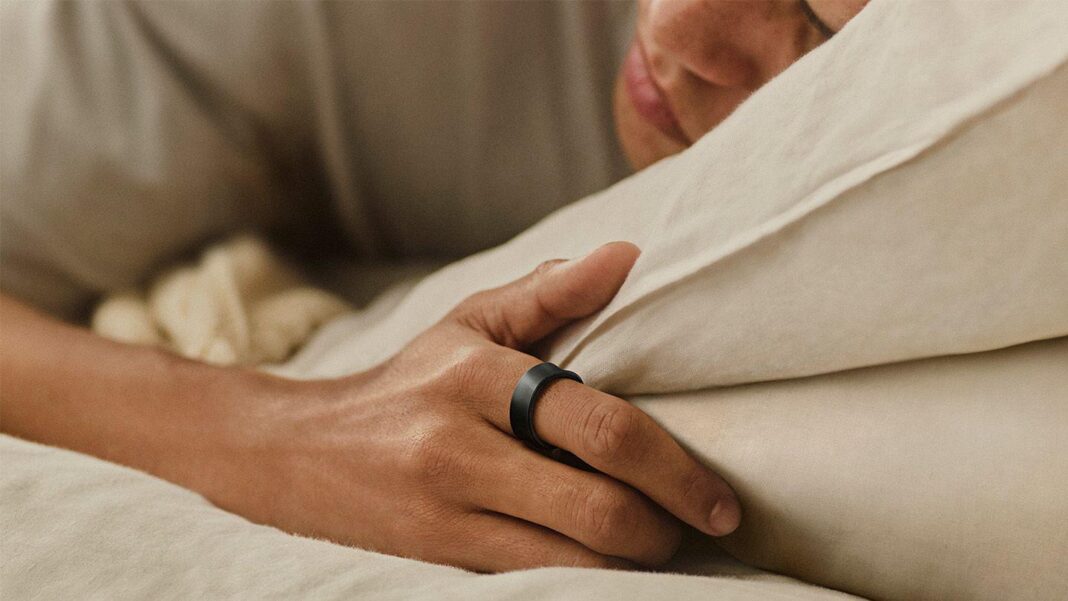BTN News: Samsung is taking a bold leap into the emerging market of smart rings with the introduction of its new Galaxy Ring, designed to attract tech enthusiasts focused on health and fitness. Announced at the Galaxy Unpacked event, the Galaxy Ring aims to blend advanced health tracking capabilities with a sleek, minimalistic design, positioning itself as a game-changer in the wearable technology space.
A New Player in Smart Rings: Samsung’s Ambitious Move
In a move that could shake up the wearable tech market, Samsung, the South Korean tech giant, has launched its first smart ring, the Galaxy Ring. The device is part of Samsung’s broader strategy to enhance its ecosystem of connected devices, integrating artificial intelligence (AI) for more personalized health insights. Priced at $399.99 in the U.S. (plus taxes), it is now available for pre-order.
While smart rings remain a niche product, Samsung’s entry could drive broader consumer adoption. “It’s an interesting bet,” says Ben Wood, an analyst at CCS Insight. His firm estimates a global market of around four million smart rings by 2025 — a small fraction compared to the expected 250 million smartwatches. However, other analysts argue that Samsung’s entry could change consumer perceptions and popularize the category.
Why Samsung Thinks Smart Rings Are the Next Big Thing
Samsung’s Galaxy Ring offers an alternative for users seeking a less intrusive, stylish option for health monitoring. Unlike bulky smartwatches, the Galaxy Ring provides 24/7 health, wellness, and sleep tracking in a more discreet form. James Kitto, Vice President and Head of Samsung’s Mobile Division in the UK and Ireland, calls it the company’s “most compact and unobtrusive product to date.”
The ring tracks various health metrics, including heart rate, sleep patterns, and even menstrual cycles — data that’s crucial for many users. By being less cumbersome, especially during sleep, it may appeal to those who find smartwatches uncomfortable or impractical to wear at night.
Smart Ring Technology: How Does It Compare to Smartwatches?
While smartwatches typically offer a broader range of sensors and functionalities, smart rings like the Galaxy Ring have their advantages. According to Francisco Jerónimo, an analyst at IDC, “For many consumers, Samsung’s smart ring will be their first exposure to this technology, creating crucial awareness that could drive long-term market growth.”
Moreover, smart rings are smaller, lighter, and more comfortable, making them ideal for continuous wear. They are particularly suited for sleep tracking, where comfort and minimal interference are essential.
The Galaxy Ring: What’s Inside and Who Can Use It?
Samsung’s Galaxy Ring comes in nine different sizes to fit various fingers and is compatible with Android phones running Android 11 or later, provided they have the Samsung Health app. Some AI-powered features, such as personalized health suggestions and energy scores, are exclusive to Galaxy device users.
However, there are privacy concerns. Efpraxia Zamani, an Associate Professor at Durham University, warns that while being part of a larger ecosystem can enhance user experience, it can also lead to greater data sharing and privacy risks. “The collection and combination of health data from various devices — like a ring, smartwatch, or phone — could result in more negative impacts than positive ones,” she cautions.
A Competitive Market: Can Samsung Compete with Established Players?
Currently, the smart ring market is dominated by Finnish health tech company Oura, whose rings are popular among celebrities and fitness enthusiasts. With Samsung’s entry, the market dynamics could shift. The Galaxy Ring’s competitive pricing and integration with the Samsung ecosystem might attract users looking for a unified experience.
However, Samsung must navigate privacy concerns and establish itself as a trustworthy alternative in a market where data security has become increasingly critical. For instance, in 2023, the UK’s Information Commissioner’s Office launched a review of period and fertility tracking apps over data security issues, highlighting the sensitivity surrounding health data.
What Does the Future Hold for Smart Rings?
Smart rings like the Galaxy Ring could represent the future of wearable health technology. With a sleek design and focus on essential health metrics, they offer a convenient, comfortable alternative to smartwatches. While still a niche market, their potential to become mainstream is evident, especially with a tech giant like Samsung pushing forward.
For many consumers, the Galaxy Ring will be their first encounter with a smart ring, potentially transforming it from a tech novelty into a must-have gadget.
Conclusion: Samsung’s Galaxy Ring – A Game Changer?
Samsung’s new Galaxy Ring represents an intriguing new chapter in the evolution of wearables. With its focus on health and wellness, a more discreet form factor, and integration within the broader Samsung ecosystem, it has the potential to make smart rings more accessible and popular. However, it must also address privacy concerns to win over skeptical consumers.
The Galaxy Ring could be the device that propels smart rings from niche to mainstream, thanks to Samsung’s brand power and market reach. As the world becomes more health-conscious, this new wearable might just be the next big thing in personal tech.


